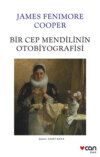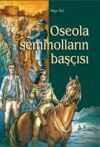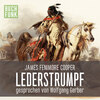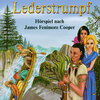Kitabı oku: «The Chainbearer: or, The Littlepage Manuscripts», sayfa 49
"I have heard of a proposition for the legislature to appoint special commissioners, who are to settle all the difficulties between the landlords and the tenants," I remarked, "a scheme in the result of which some people profess to have a faith. I regard it as only one of the many projects that have been devised to evade the laws and institutions of the country, as they now exist."
Mary Warren seemed thoughtful for a moment; then her eye and face brightened as if she were struck with some thought suddenly; after which the color deepened on her cheek, and she turned to me as if half doubting, and yet half desirous of giving utterance to the idea that was uppermost.
"You wish to say something, Miss Warren?"
"I dare say it will be very silly – and I hope you won't think it pedantic in a girl, but really it does look so to me – what difference would there be between such a commission and the Star-Chamber judges of the Stuarts, Mr. Littlepage?"
"Not much in general principles, certainly, as both would be the instruments of tyrants; but a very important one in a great essential. The Star-Chamber courts were legal, whereas this commission would be flagrantly illegal; the adoption of a special tribunal to effect certain purposes that could exist only in the very teeth of the constitution, both in its spirit and its letter. Yet this project comes from men who prate about the 'spirit of the institutions,' which they clearly understand to be their own spirit, let that be what it may."
"Providence, I trust, will not smile on such desperate efforts to do wrong!" said Mary Warren, solemnly.
"One hardly dare look into the inscrutable ways of a Power that has its motives so high beyond our reach. Providence permits much evil to be done, and is very apt to be, as Frederick of Prussia expressed it, on the side of strong battalions, so far as human vision can penetrate. Of one thing, however, I feel certain, and that is, that they who are now the most eager to overturn everything to effect present purposes, will be made to repent of it bitterly, either in their own persons, or in those of their descendants."
"That is what is meant, my father says, by visiting 'the sins of the fathers upon the children, unto the third and fourth generations.' But there is the party, with their prisoners, just entering the village. Who is your companion, Mr. Littlepage? – One hired to act as an assistant?"
"It is my uncle himself. You have often heard, I should think, of Mr. Roger Littlepage?"
Mary gave a little exclamation at hearing this, and she almost laughed. After a short pause she blushed brightly, and turned to me as she said —
"And my father and I have supposed you, the one a pedler, and the other a street-musician!"
"But beddlars and moosic-grinders of goot etications, as might be panished for deir bolitics."
Now, indeed, she laughed out, for the long and frank dialogue we had held together made this change to broken English seem as if a third person had joined us. I profited by the occasion to exhort the dear girl to be calm, and not to feel any apprehension on the subject of her father. I pointed out how little probable it was that violence would be offered to a minister of the gospel, and showed her, by the number of persons that had collected in the village, that it was impossible he should not have many warm and devoted friends present. I also gave her permission to, nay, requested she would, tell Mr. Warren the fact of my uncle's and my own presence, and the reasons of our disguises, trusting altogether to the very obvious interest the dear girl took in our safety, that she would add, of her own accord, the necessary warning on the subject of secrecy. Just as this conversation ended we drove into the hamlet, and I helped my fair companion to alight.
Mary Warren now hastened to seek her father, while I was left to take care of the horse. This I did by fastening him to the rails of a fence, that was lined for a long distance by horses and wagons drawn up by the wayside. Surprisingly few persons in the country, at this day, are seen on horseback. Notwithstanding the vast difference in the amount of the population, ten horsemen were to be met with forty years ago, by all accounts, on the highways of the State, for one to-day. The well-known vehicle, called a dearborn, with its four light wheels and mere shell of a box, is in such general use as to have superseded almost every other species of conveyance. Coaches and chariots are no longer met with, except in the towns; and even the coachee, the English sociable, which was once so common, has very generally given way to a sort of carriage-wagon, that seems a very general favorite. My grandmother, who did use the stately-looking and elegant chariot in town, had nothing but this carriage-wagon in the country; and I question if one-half of the population of the State would know what to call the former vehicle, if they should see it.
As a matter of course, the collection of people assembled at Little Nest on this occasion had been brought together in dearborns, of which there must have been between two and three hundred lining the fences and crowding the horse-sheds of the two inns. The American countryman, in the true sense of the word, is still quite rustic in many of his notions; though, on the whole, less marked in this particular than his European counterpart. As a rule, he has yet to learn that the little liberties which are tolerated in a thinly peopled district, and which are of no great moment when put in practice under such circumstances, become oppressive and offensive when reverted to in places of much resort. The habits of popular control, too, come to aid in making them fancy that what everybody does in their part of the country can have no great harm in it. It was in conformity with this tendency of the institutions, perhaps, that very many of the vehicles I have named were thrust into improper places, stopping up the footways, impeding the entrances to doors, here and there letting down bars without permission, and garnishing orchards and pastures with one-horse wagons. Nothing was meant by all these liberties beyond a desire to dispose of the horses and vehicles in the manner easiest to their owners. Nevertheless, there was some connection between the institutions and these little liberties which some statesmen might fancy existed in the spirit of the former. This, however, was a capital mistake, inasmuch as the spirit of the institutions is to be found in the laws, which prohibit and punish all sorts of trespasses, and which are enacted expressly to curb the tendencies of human nature! No, no, as my uncle Ro says, nothing can be less alike, sometimes, than the spirit of institutions and their tendencies.
I was surprised to find nearly as many females as men had collected at the Little Nest on this occasion. As for the Injins, after escorting Mr. Warren as far as the village, as if significantly to admonish him of their presence, they had quietly released him, permitting him to go where he pleased. Mary had no difficulty in finding him, and I saw her at his side, apparently in conversation with Opportunity and her brother, Seneca, as soon as I moved down the road, after securing the horses. The Injins themselves kept a little aloof, having my uncle in their very centre; not as a prisoner, for it was clear no one suspected his character, but as a pedler. The watches were out again, and near half of the whole gang seemed busy in trading, though I thought that some among them were anxious and distrustful.
It was a singular spectacle to see men who were raising the cry of "aristocracy" against those who happened to be richer than themselves, while they did not possess a single privilege or power that, substantially, was not equally shared by every other man in the country, thus openly arrayed in defiance of law, and thus violently trampling the law under their feet. What made the spectacle more painful was the certainty that was obtained by their very actions on the ground, that no small portion of these Injins were mere boys, led on by artful and knavish men, and who considered the whole thing as a joke. When the laws fall so much into disrepute as to be the subjects of jokes of this sort, it is time to inquire into their mode of administration. Does any one believe that fifty landlords could have thus flown into the face of a recent enactment, and committed felony openly, and under circumstances that had rendered their intentions no secret, for a time long enough to enable the authorities to collect a force sufficient to repress them? My own opinion is, that had Mr. Stephen Rensselaer, and Mr. William Rensselaer, and Mr. Harry Livingston, and Mr. John Hunter, and Mr. Daniel Livingston, and Mr. Hugh Littlepage, and fifty more that I could name, been caught armed and disguised, in order to defend the rights of property that are solemnly guaranteed in these institutions, of which it would seem to be the notion of some that it is the "spirit" to dispossess them, we should all of us have been the inmates of States' prisons, without legislators troubling themselves to pass laws for our liberation! This is another of the extraordinary features of American aristocracy, which almost deprives the noble of the every-day use and benefit of the law. It would be worth our while to lose a moment in inquiring into the process by which such strange results are brought about, but it is fortunately rendered unnecessary by the circumstance that the principle will be amply developed in the course of the narrative.
A stranger could hardly have felt the real character of this meeting by noting the air and manner of those who had come to attend it. The "armed and disguised" kept themselves in a body, it is true, and maintained, in a slight degree, the appearance of distinctness from "the people," but many of the latter stopped to speak to these men, and were apparently on good terms with them. Not a few of the gentler sex, even, appeared to have acquaintances in the gang; and it would have struck a political philosopher from the other hemisphere with some surprise, to have seen the "people" thus tolerating fellows who were openly trampling on a law that the "people" themselves had just enacted! A political philosopher from among ourselves, however, might have explained the seeming contradiction by referring it to the "spirit of the institutions." If one were to ask Hugh Littlepage to solve the difficulty, he would have been very apt to answer that the "people" of Ravensnest wanted to compel him to sell lands which he did not wish to sell, and that not a few of them were anxious to add to the compulsory bargains conditions as to price that would rob him of about one-half of his estate; and that what the Albany philosophers called the "spirit of the institutions," was, in fact, a "spirit of the devil," which the institutions were expressly designed to hold in subjection!
There was a good deal of out-door management going on, as might be seen by the private discussions that were held between pairs, under what is called the "horse-shedding" process. This "horse-shedding" process, I understand, is well known among us, and extends not only to politics, but to the administration of justice. Your regular "horse-shedder" is employed to frequent taverns where jurors stay, and drop hints before them touching the merits of causes known to be on the calendars; possibly contrives to get into a room with six or eight beds, in which there may accidentally be a juror, or even two, in a bed, when he drops into a natural conversation on the merits of some matter at issue, praises one of the parties, while he drops dark hints to the prejudice of the other, and makes his own representations of the facts in a way to scatter the seed where he is morally certain it will take root and grow. All this time he is not conversing with a juror, not he; he is only assuming the office of the judge by anticipation, and dissecting evidence before it has been given, in the ear of a particular friend. It is true there is a law against doing anything of the sort; it is true there is law to punish the editor of a newspaper who shall publish anything to prejudice the interests of litigants; it is true the "horse-shedding process" is flagrantly wicked, and intended to destroy most of the benefits of the jury system; but, notwithstanding all this, the "spirit of the institutions" carries everything before it, and men regard all these laws and provisions, as well as the eternal principles of right, precisely as if they had no existence at all, or as if a freeman were above the law. He makes the law, and why should he not break it? Here is another effect of the "spirit of the institutions."
At length the bell rang, and the crowd began to move toward the "meetin'-'us'." This building was not that which had been originally constructed, and at the raising of which I have heard it said, my dear old grandmother, then a lovely and spirited girl of nineteen, had been conspicuous for her coolness and judgment, but a far more pretending successor. The old building had been constructed on the true model of the highest dissenting spirit – a spirit that induced its advocates to quarrel with good taste as well as religious dogmas, in order to make the chasm as wide as possible – while in this, some concessions had been made to the temper of the times. I very well remember the old "meetin'-'us'," at the "Little Nest," for it was pulled down to give place to its more pretending successor after I had attained my sixteenth year. A description of both may let the reader into the secret of our rural church architecture.
The "old Neest meetin'-'us'," like its successor, was of a hemlock frame, covered with pine clapboards, and painted white. Of late years, the paint had been of a most fleeting quality, the oil seeming to evaporate, instead of striking in and setting, leaving the coloring matter in a somewhat decomposed condition, to rub off by friction and wash away in the rains. The house was a stiff, formal parallelogram, resembling a man with high shoulders, appearing to be "stuck up." It had two rows of formal, short and ungraceful windows, that being a point in orthodoxy at the period of its erection. It had a tower, uncouth, and in some respects too large and others too small, if one can reconcile the contradiction; but there are anomalies of this sort in art, as well as in nature. On top of this tower stood a long-legged belfry, which had got a very dangerous, though a very common, propensity in ecclesiastical matters; in other words, it had begun to "cant." It was this diversion from the perpendicular which had suggested the necessity of erecting a new edifice, and the building in which the "lecture" on feudal tenures and aristocracy was now to be delivered.
The new meeting-house at Little Nest was a much more pretending edifice than its predecessor. It was also of wood, but a bold diverging from "first principles" had been ventured on, not only in the physical, but in the moral church. The last was "new-school;" as, indeed, was the first. What "new-school" means, in a spiritual sense, I do not exactly know, but I suppose it to be some improvement on some other improvement of the more ancient and venerable dogmas of the sect to which it belongs. These improvements on improvements are rather common among us, and are favorably viewed by a great number under the name of progress; though he who stands at a little distance can, half the time, discover that the parties in progress very often come out at the precise spot from which they started.
For my part, I find so much wisdom in the Bible – so profound a knowledge of human nature, and of its tendencies – counsel so comprehensive and so safe, and this solely in reference to the things of this life, that I do not believe everything is progress in the right direction because it sets us in motion on paths that are not two thousand years old! I believe that we have quite as much that ought to be kept, as of that which ought to be thrown away; and while I admit the vast number of abuses that have grown up in the old world, under the "spirit of their institutions," as our philosophers would say, I can see a goodly number that are also growing up here, certainly not under the same "spirit," unless we refer them both, as a truly wise man would, to our common and miserable nature.
The main departure from first principles, in the sense of material things, was in the fact that the new meeting-house had only one row of windows, and that the windows of that row had the pointed arch. The time has been when this circumstance would have created a schism in the theological world; and I hope that my youth and inexperience will be pardoned, if I respectfully suggest that a pointed arch, or any other arch in wood, ought to create another in the world of taste.
But in we went, men, women and children; uncle Ro, Mr. Warren, Mary, Seneca, Opportunity, and all, the Injins excepted. For some reason connected with their policy, those savages remained outside, until the whole audience had assembled in grave silence. The orator was in, or on, a sort of stage, which was made, under the new-light system in architecture, to supersede the old, inconvenient, and ugly pulpit, supported on each side by two divines, of what denomination I shall not take on myself to say. It will be sufficient if I add, Mr. Warren was not one of them. He and Mary had taken their seats quite near the door, and under the gallery. I saw that the rector was uneasy the moment the lecturer and his two supporters entered the pulpit and appeared on the stage; and at length he arose, and, followed by Mary, he suddenly left the building. In an instant I was at their side, for it struck me indisposition was the cause of so strange a movement. Fortunately, at this moment, the whole audience rose in a body, and one of the ministers commenced an extempore prayer.
At that instant, the Injins had drawn themselves up around the building, close to its sides, and under the open windows, in a position that enabled them to hear all that passed. As I afterward learned, this arrangement was made with an understanding with those within, one of the ministers having positively refused to address the throne of grace so long as any of the tribe were present. Well has it been said, that man often strains at a gnat, and swallows a camel!
CHAPTER XV
"I tell thee, Jack Cade, the clothier means to dress the commonwealth, and turn it, and put a new nap upon it." —King Henry VI.
As I knew Mary must have communicated to her father my real name, I did not hesitate, as I ought to have done in my actual dress and in my assumed character, about following them, in order to inquire if I could be of any service. I never saw distress more strongly painted in any man's countenance than it was in that of Mr. Warren, when I approached. So very obvious, indeed, was his emotion, that I did not venture to obtrude myself on him, but followed in silence; and he and Mary slowly walked, side by side, across the street to the stoop of a house, of which all the usual inmates had probably gone in the other direction. Here Mr. Warren took a seat, Mary still at his side, while I drew near, standing before him.
"I thank you, Mr. Littlepage," the divine at length said, with a smile so painful it was almost haggard, "for, so Mary tells me you should be called – I thank you for this attention, sir – but, it will be over in another minute – I feel better now, and shall be able to command myself."
No more was then said, concerning the reason of this distress; but Mary has since explained to me its cause. When her father went into the meeting-house, he had not the smallest idea that anything like a religious service would be dragged into the ceremonies of such a day. The two ministers on the stage first gave him the alarm; when a most painful struggle occurred in his mind, whether or not he should remain, and be a party to the mockery of addressing God in prayer, in an assembly collected to set at naught one of the plainest of his laws – nay, with banded felons drawn up around the building, as principal actors in the whole mummery. The alternative was for him, a minister of the altar, to seem to quit those who were about to join in prayer, and to do this moreover under circumstances which might appear to others as if he rejected all worship but that which was in accordance with his own views of right, a notion that would be certain to spread far and near, greatly to the prejudice of his own people. But the first, as he viewed the matter, involved a species of blasphemy; and yielding to his feelings, he took the decided step he had, intending to remain out of the building, until the more regular business of the day commenced.
It is certain Mr. Warren, who acted under the best impulse of Christian feeling, a reverence for God, and a profound wish not to be a party in offending him with the mockery of worship under such circumstances, has lost much influence, and made many enemies, by the step he then took. The very same feeling which has raised the cry of aristocracy against every gentleman who dwells in sufficiently near contact with the masses to distinguish his habits from those around him; which induces the eastern emigrant, who comes from a state of society where there are no landlords, to fancy those he finds here ought to be pulled down, because he is not a landlord himself; which enables the legislator to stand up in his place, and unblushingly talk about feudal usages, at the very instant he is demonstrating that equal rights are denied to those he would fain stigmatize as feudal lords, has extended to religion, and the Church of which Mr. Warren was a minister, is very generally accused of being aristocratic, too! This charge is brought because it has claims which other Churches affect to renounce and reject as forming no part of the faith; but the last cannot remain easy under their own decision; and while they shout, and sing that they have found "a Church without a bishop," they hate the Church that has a bishop, because it has something they do not possess themselves, instead of pitying its deluded members, if they believe them wrong. This will not be admitted generally, but it is nevertheless true; and betrays itself in a hundred ways. It is seen in the attempt to call their own priests bishops, in the feeling so manifest whenever a cry can be raised against their existence, and in the general character of these theological rallies, whenever they do occur.
For one, I see a close analogy between my own Church, as it exists in this country, and comparing it with that from which it sprung, and to those which surround it, and the true political circumstances of the two hemispheres. In discarding a vast amount of surplusage, in reducing the orders of the ministry, in practice as well as in theory, to their primitive number, three, and in rejecting all connection with the state, the American branch of the Episcopal Church has assumed the position it was desirous to fill; restoring, as near as may be, the simplicity of the apostolical ages, while it does not disregard the precepts and practices of the apostles themselves. It has not set itself above antiquity and authority, but merely endeavored to sustain them, without the encumbrances of more modern abuses. Thus, too, has it been in political things. No attempt has been made to create new organic social distinctions in this country, but solely to disencumber those that are inseparable from the existence of all civilized society, of the clumsy machinery with which the expedients of military oppressors had invested them. The real sages of this country, in founding its institutions, no more thought of getting rid of the landlords of the country, than the Church thought of getting rid of its bishops. The first knew that the gradations of property were an inevitable incident of civilization; that it would not be wise, if it were possible, to prevent the affluent from making large investments in the soil; and that this could not be done in practice, without leaving the relation of landlord and tenant. Because landlords, in other parts of the world, possessed privileges that were not necessary to the natural or simple existence of the character, was no reason for destroying the character itself; any more than the fact that the bishops of England possess an authority the apostles knew nothing of, rendered it proper for the American branch of the Church to do away with an office that came from the apostles. But envy and jealousy do not pause to reflect on such things; it is enough for them, in the one case, that you and yours have estates and occupy social positions, that I and mine do not, and cannot easily, occupy and possess; therefore I will oppose you, and join my voice to the cry of those who wish to get their farms for nothing; and in the other, that you have bishops when we can have none, without abandoning our present organization and doctrines.
I dwell on these points at some little length, because the movement of Mr. Warren and myself, at that moment, had a direct influence on the circumstances that will soon be related. It is probable that fully one-half of those collected in the Little Nest meeting-house, that morning, as they stood up, and lent a sort of one-sided and listless attention to the prayer, were thinking of the scandalous and aristocratical conduct of Mr. Warren, in "goin' out o' meetin' just as meetin' went to prayers!" Few, indeed, were they who would be likely to ascribe any charitable motive for the act; and probably not one of those present thought of the true and conscientious feeling that had induced it. So the world wags! It is certain that a malignant and bitter feeling was got up against the worthy rector on that occasion, and for that act, which has not yet abated, and which will not abate in many hundreds, until the near approach of death shall lay bare to them the true character of so many of their own feelings.
It was some minutes before Mr. Warren entirely regained his composure. At length he spoke to me, in his usual benevolent and mild way, saying a few words that were complimentary, on the subject of my return, while he expressed his fears that my uncle Ro and myself had been imprudent in thus placing ourselves, as it might be, in the lion's jaws.
"You have certainly made your disguises so complete," he added, smiling, "as to have escaped wonderfully well so far. That you should deceive Mary and myself is no great matter, since neither of us ever saw you before; but, the manner in which your nearest relatives have been misled, is surprising. Nevertheless, you have every inducement to be cautious, for hatred and jealousy have a penetration that does not belong even to love."
"We think we are safe, sir," I answered, "for we are certainly within the statute. We are too well aware of our miserable aristocratical condition to place ourselves within the grasp of the law, for such are our eminent privileges as a landed nobility, that we are morally certain either of us would not only be sent to the State's prison were he to be guilty of the felony those Injins are committing, and will commit, with a perfect impunity, but that he would be kept there, as long as a single tear of anguish could be wrung from one of those who are classed with the aristocracy. Democracy alone finds any sympathy in the ordinary administration of American justice."
"I am afraid that your irony has only too much truth in it. But the movement around the building would seem to say that the real business of the day is about to commence, and we had better return to the church."
"Those men in disguise are watching us, in a most unpleasant and alarming manner," said Mary Warren, delighting me far more by the vigilance she thus manifested in my behalf, than alarming me by the fact.
That we were watched, however, became obviously apparent, as we walked toward the building, by the actions of some of the Injins. They had left the side of the church where they had posted themselves during the prayer, and head was going to head, among those nearest to us; or, it would be nearer to appearances, were I to say bunch of calico was going to bunch of calico, for nothing in the form of a head was visible among them. Nothing was said to Mr. Warren and Mary, however, who were permitted to go into the meeting-house, unmolested; but two of these disguised gentry placed themselves before me, laying their rifles across my path, and completely intercepting my advance.
"Who you?" abruptly demanded one of the two; – "where go – where come from?"
The answer was ready, and I trust was sufficiently steady.
"I coomes from Charmany, und I goes into der kerch, as dey say in mine coontry; what might be callet a meetin'-'us, here."
What might have followed, it is not easy to say, had not the loud, declamatory voice of the lecturer just then been heard, as he commenced his address. This appeared to be a signal for the tribe to make some movement, for the two fellows who had stopped me, walked silently away, though bag of calico went to bag of calico, as they trotted off together, seemingly communicating to each other their suspicions. I took advantage of the opening, and passed into the church, where I worked my way through the throng, and got a seat at my uncle's side.
I have neither time, room, nor inclination to give anything like an analysis of the lecture. The speaker was fluent, inflated, and anything but logical. Not only did he contradict himself, but he contradicted the laws of nature. The intelligent reader will not require to be reminded of the general character of a speech that was addressed to the passions and interests of such an audience, rather than to their reason. He commented, at first, on the particular covenants of the leases on the old estates of the colony, alluding to the quarter-sales, chickens, days' work, and durable tenures, in the customary way. The reservation of the mines, too, was mentioned as a tyrannical covenant, precisely as if a landlord were obliged to convey any more of the rights that were vested in him, than he saw fit; or the tenant could justly claim more than he had hired! This man treated all these branches of the subject, as if the tenants had acquired certain mysterious interests by time and occupation, overlooking the fact that the one party got just as good a title as the other by this process; the lease being the instrument between them, that was getting to be venerable. If one party grew old as a tenant, so did the other as a landlord. I thought that this lecturer would have been glad to confine himself to the Manor leases, that being the particular branch of the subject he had been accustomed to treat; but, such was not the precise nature of the job he was now employed to execute. At Ravensnest, he could not flourish the feudal grievance of the quarter-sales, the "four fat fowls," the "days' works," and the length of the leases. Here it was clearly his cue to say nothing of the three first, and to complain of the shortness of the leases, as mine were about to fall in, in considerable numbers. Finding it was necessary to take new ground, he determined it should be bold ground, and such as would give him the least trouble to get along with.










